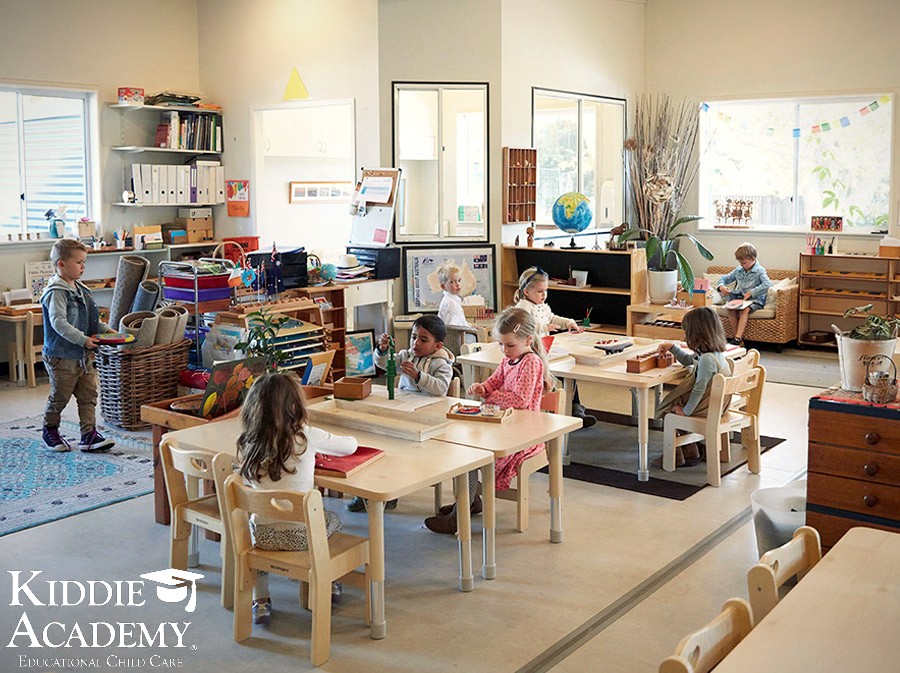What Kids Learn in Preschool: From learning to take turns to count 10 to 10. Preschool is all about discovering. When your child completes preschool near me, they’ll have gained a lot. The entire duration of the lessons and topics your child is exposed to throughout preschool education is called”the preschool curriculum.
The preschool you select and the early childhood education model that it adheres to, Your child can participate in many different physicals, academic, social and emotional activities. Alongside academics and social skills, some preschools focus on crucial fine motor and speech abilities. 1
In some preschools, they can also help children complete their toilet education. 2 By the time they enter kindergarten, children who participate in preschools should be able to talk in more complex phrases and sentences. They should also use scissors, follow directions and kick an object.
Academic Concepts in the Preschool Curriculum
The curriculum that is offered in one preschool could differ in a significant way from the curriculum available in other schools. This is because the same standards don’t govern preschools as K-12 education.
Thus, the individual schools and groups of schools enjoy the right to teach as they want to in the way they choose. 3 For example, preschools in religious institutions can incorporate religious education as part of their program. Montessori preschools utilize specific materials and activities that help children learn through hands-on activities. 4
Teachers can also alter their approach to education to meet the individual needs of the students in their class. Although preschools do not all adhere to the same academic guidelines, they are designed to prepare children for school. This means that the most successful preschools concentrate on specific skills, such as science, math and literacy.
The most important concepts of the preschool curriculum are the following:
- Calendar, which includes the seasons, the days of the week, and months of the year.
- Colouring
- Colours
- Cooperation
- Cutting
- Painting and drawing
- Glueing
- Hygiene
- Letters
- Listening
- Nature
- Numbers
- Physical activities like running or jumping, skipping, walking on one foot and playing with equipment for playing and balls
- Shapes
- Sharing
- Sorting objects
- Turns to take turns
- Moving from one activity to the next
- Weather
- Writing numbers and letters
Motor Skills
Preschoolers are learning to develop their gross motor abilities (which require big physical movements) and fine motor abilities (such as manual dexterity and hand-eye coordination). A lot of preschools are actively learning these skills of development.
Fine motor tasks that are crucial for grasping, writing and coordinating fine movement include drawing, cutting, colouring and glueing. The gross motor abilities are usually practised during recess. It might involve equipment for play, such as running and skipping and throwing or kicking the ball to a friend.
Social and School-Readiness Skills
Preschool is also designed to teach youngsters social and school-readiness. The classes teach kids how to behave in a group environment, focusing on behaviours like sharing, turning over, cooperative playing, transitioning from one task to another, and adhering to classroom rules. Preschool is also a time for children to learn self-care techniques they’ll need to be able to use in kindergarten, like taking off their shoes and coats, eating themselves and going to the bathroom on their own.
Preschool Curriculum Implementation
Most preschools have a list of objectives and a guiding principle that every teacher must follow. Sometimes teachers adhere to those general guidelines in a non-formal method. In most cases, teachers follow specific rubrics and lesson plans to evaluate student progress.
The curriculum for preschools is based on the duration of the preschool day. Some preschools only run for one or two hours per day, While others (especially in public schools) are open throughout the day. Some are even longer than the typical school day to accommodate parents’ working hours.
On any given day, preschoolers can participate in:
- Field trips are designed to help enhance the learning experience, for example visiting the Post Office to find out more about mail or a trip to the supermarket to discover the importance of choosing healthy food choices.
- Special guests who come to give more information for a lesson, for example, police officers to talk about safety or dental professionals to talk about dental health
- Extracurricular activities that the first preschool teacher doesn’t necessarily offer; however, they are taught by a specialist library, music or physical education teacher.
- Particular activities, like the circle, time for songs, schedule time for active playtime, calendar time, craft time, or storytime.
- There are transitional times between different activities, such as learning to walk with other students and tidying up toys and other supplies.
A preschool program can comprise homework assigned to the child to strengthen the lessons taught in the classroom. However, many teachers think that homework is unnecessary at this point. 5
Although it might appear as if children are playing in the preschool classroom all day long, that’s not the reality. Play is much more than just enjoying themselves, even though they certainly are having plenty of fun. 6 Especially when it involves interaction with other children, playing helps children learn how to:
- Establish friendships
- Learn to work together
- Take turns
- Explore your ideas
- Explore different methods of solving your problems
- Make use of your imagination
What to Look for in a Preschool
Whichever school’s philosophy you follow ( Bank Street, Reggio Emilia, and HighScope are all common types), the curriculum for preschool must encourage learning and help children reach their physical, social, language and cognitive targets. In a perfect world, the curriculum for preschool should be of high quality. It is taught by qualified instructors and will be built on the most current research in childhood education. 7
The school’s curriculum and the school philosophy for preschools are followed in the preschool; the curriculum for preschool is developed by the school’s teachers, administrators and, in certain cases, parents. If you need to ask a question regarding the curriculum or anything else at your child’s preschool, contact the school’s teacher or an administrator.


